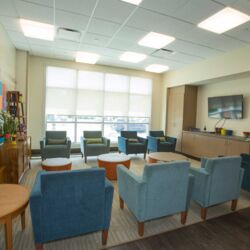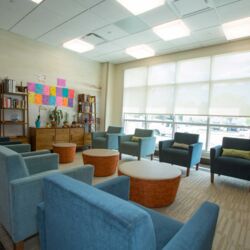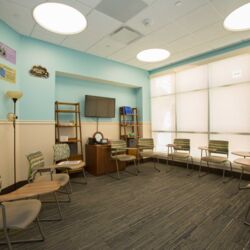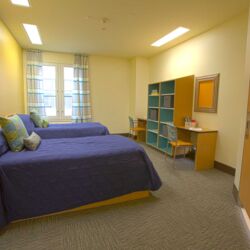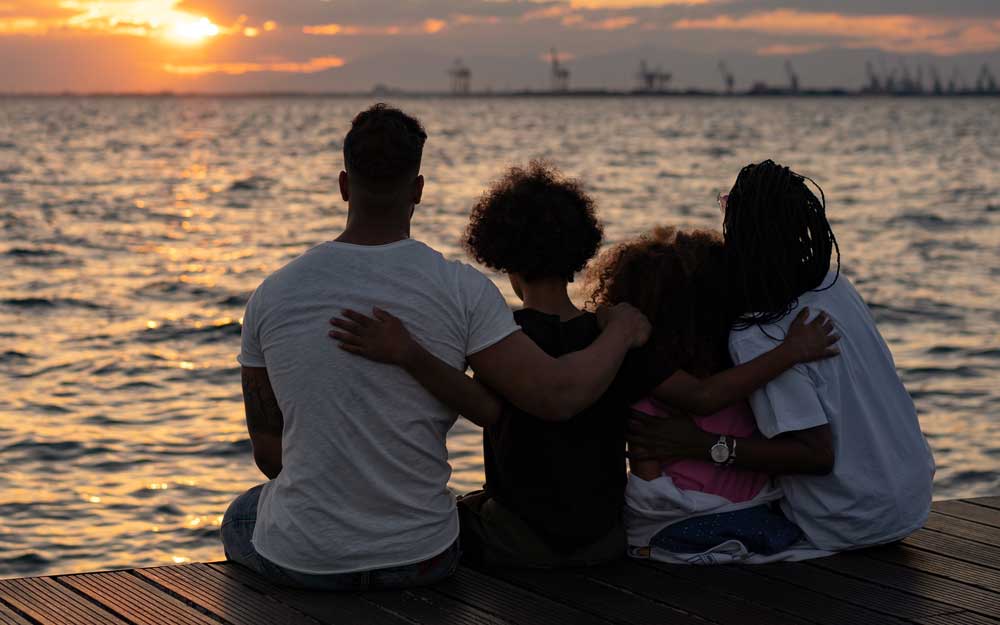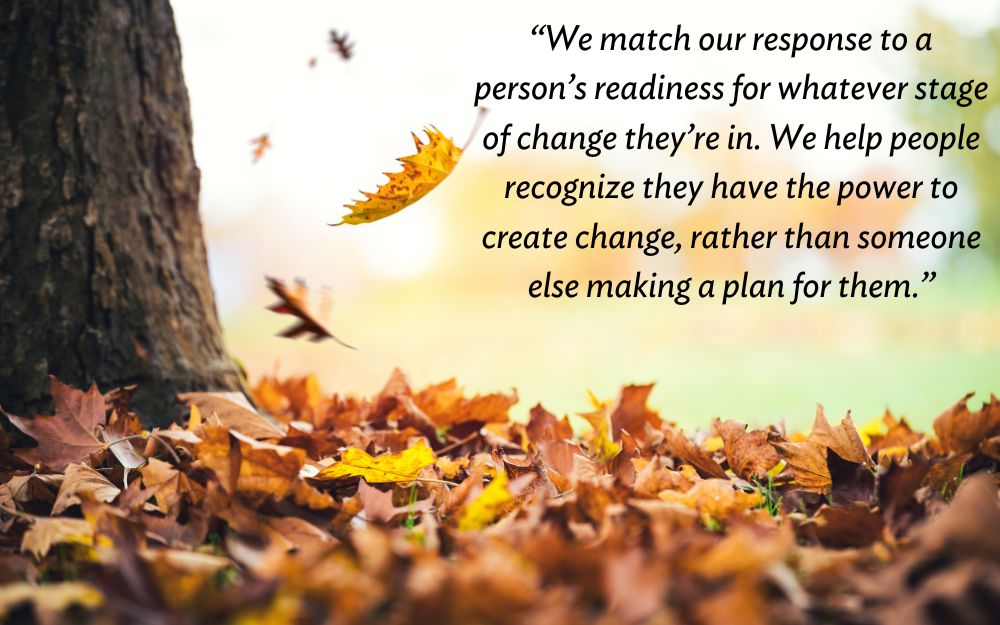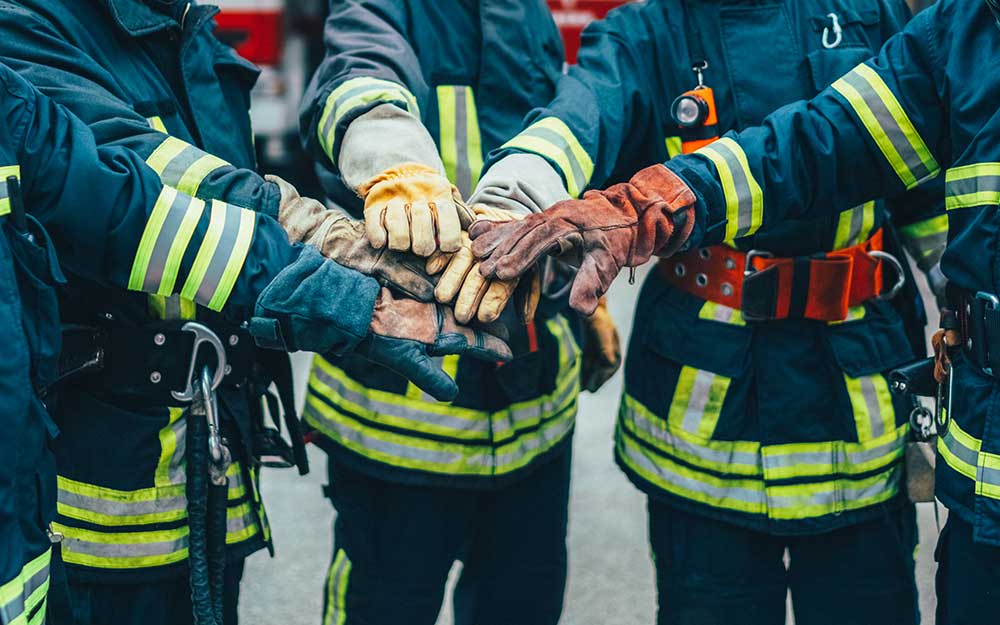
Mental Health and Addiction Recovery Adolescent Residential Care
Teenagers often use substances to temporarily decrease the stress or anxiety associated with an underlying mental health issue. We understand how concerning addiction can be, and our team at Rogers can help.
Through our Mental Health and Addiction Recovery residential treatment program for 12 to 17-year-olds, we treat the co-occurring mental health disorder and the substance use of alcohol, drugs or opioids. Studies show it’s most effective to treat both at the same time.
Signs of drug use in teens
The signs of drug use in teens are similar to the signs of substance abuse in adults. Drug and alcohol addiction can begin as a way for teens to get short-term relief of stress or worry. The following are signs of teenage addiction:
- The use of substances even is they may have health issues
- Being unable to accomplish daily tasks
- Decline in performance at school
- Unable to sleep
- Shying away from activities they normally enjoy
To see more general signs or symptoms of addiction, visit our addiction facts page.
Wondering if your teen could be using drugs or alcohol? Take a short quiz to learn more.
Residential program for teens & adolescents
This residential level of care provides an in-depth treatment option when more intensive care is needed. In a home-like setting at our West Allis location, a typical stay is 30 to 60 days.
Patients receive comprehensive, evidence-based care with our focus on treatment for the following co-occurring disorders:
- Mental health disorders, including depression, bipolar disorder or other mood and anxiety disorders
- Substance use disorders, including alcohol, drug, opioid, synthetic opioid (fentanyl), and stimulant (adderall) addiction
Our multidisciplinary team led by a board-certified child and adolescent psychiatrist and addiction medicine specialist, brings expertise in both mental health and addiction to our therapeutic approach to recovery. Patients have regular contact with a psychiatrist and psychologist, in addition to ongoing work with dedicated therapists and counselors.
At the core of this program is cognitive behavioral therapy to help identify challenges and develop coping skills. In addition, patients engage in behavioral activation, practice mindfulness and build other dialectical behavior therapy (DBT) skills. For addiction, this includes DBT skills that can help alleviate physical discomfort, diminish urges, and increase healthy behaviors. Motivational interviewing and substance use disorder counseling also help effect change.
Additional therapeutic support
- Group therapy
- Family therapy and education
- Family program
- Medication management
- Experiential therapy (art, recreational and movement)
- Daily living skills
- Nutrition and health education
- Personal wellness education
- Community meetings and guest speakers
- Spiritual care services
- Community outings and therapeutic passes
With an integrated approach to care for co-occurring mental health and addiction, residents will find a variety of groups and activities within the day, all meant to support healthy change. Here’s what a typical day looks like.
|
Morning |
Afternoon |
Evening |
|
Hygiene and medication |
Lunch |
Dinner |
|
Breakfast |
School |
Group check-in and skills review |
|
Mindfulness and goals check-in |
Process Group |
Schoolwork |
|
AODA group |
Snack and personal time |
Structured leisure |
|
DBT skills group |
Behavioral activation |
Shower and phone time |
|
Experiential therapy |
DBT skills review |
|
Schedules include designated time throughout the week for school work, allowing residents to keep up with academic assignments as much as possible during their treatment stay. Time for personal activity, family visits, and phone calls are also accommodated.
Family sessions are generally held once a week, and help everyone focus on the family’s communication patterns, value and belief systems, roles and expectations as they relate to the child’s treatment.
Our multidisciplinary team of professionals creates an individualized treatment plan that addresses each patient's needs.
The team includes:
- Board-certified child and adolescent psychiatrist
- Pediatric, family practice or internal medicine physician
- Licensed clinical psychologist
- Master’s level therapist
- Therapeutic specialist
- Certified substance abuse counselor
- Registered psychiatric nurse
- Experiential therapist
- Registered dietitian
- Certified teachers
- Child and adolescent-trained residential care specialists
- Program manager
“Because of this care, I have decided to make a change. I no longer feel the need to use drugs/substances to cover up my problems. This is one of the best things I have done with my life.
~Former patient in our Mental Health and Addiction Recovery Adolescent residential care
Mental Health and Addiction Recovery Adolescent Residential Care setting and tour
A newly renovated home for our residential Mental Health and Addiction Recovery for adolescents on the first floor of our hospital location in West Allis, Wisconsin, awaits your son or daughter — not far from Lake Michigan and downtown Milwaukee. A warm, contemporary décor provides the backdrop for the community living space, semi-private bedrooms and therapy rooms within the 12-bed unit. Easy access to the main gymnasium and supervised outdoor activities in the greater Milwaukee area complement the indoor therapeutic setting.
Concerned your teen is struggling and could benefit from residential care?
Contact us to request a free confidential screening and learn more.
Call 800-767-4411
Rising Above Substance Use and Addiction | Christina's Story
"The lowest point of my life was the day that my parents had to step in and take guardianship of my daughter, and I had to watch them drive away." ... Read More

